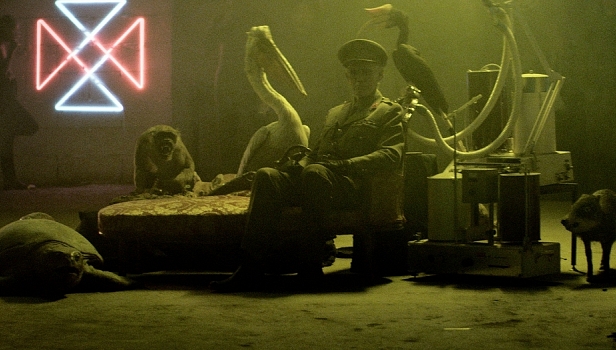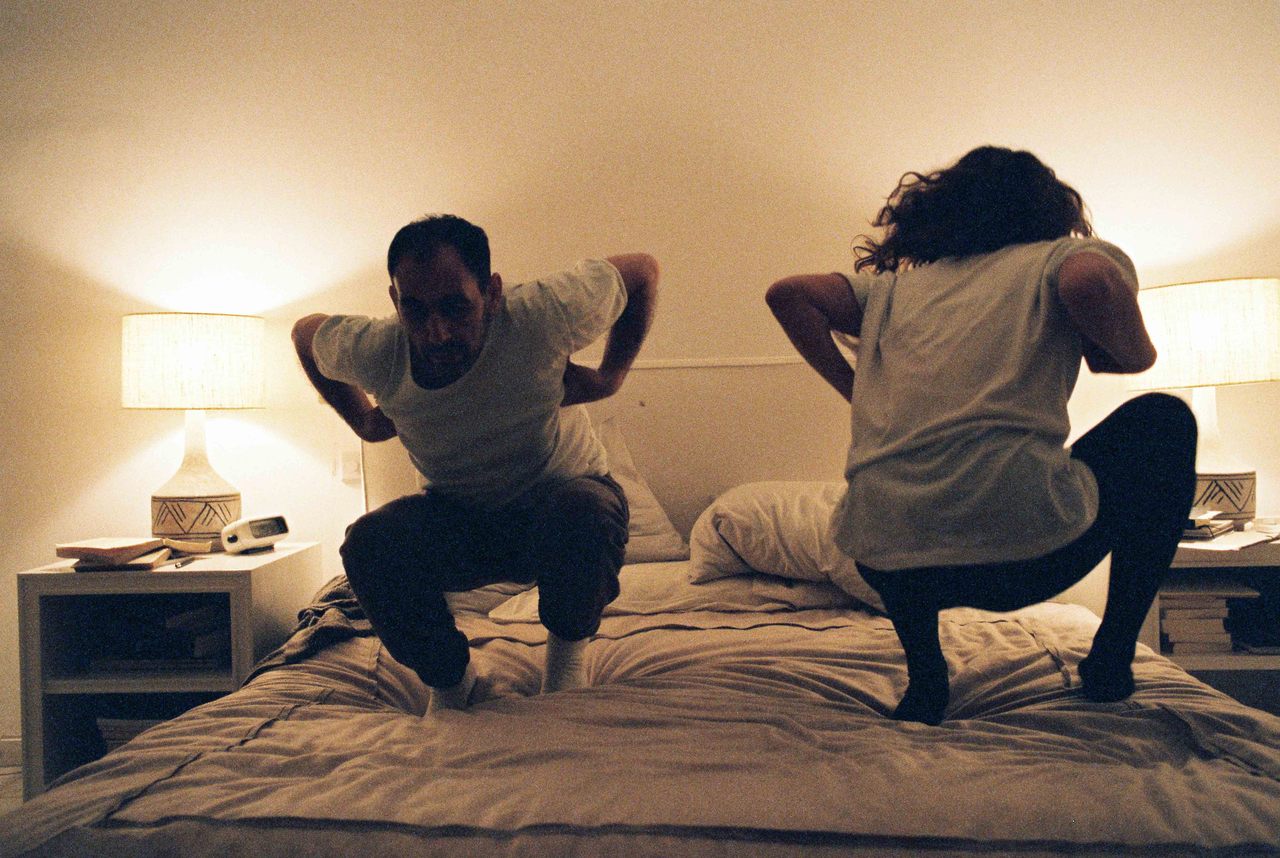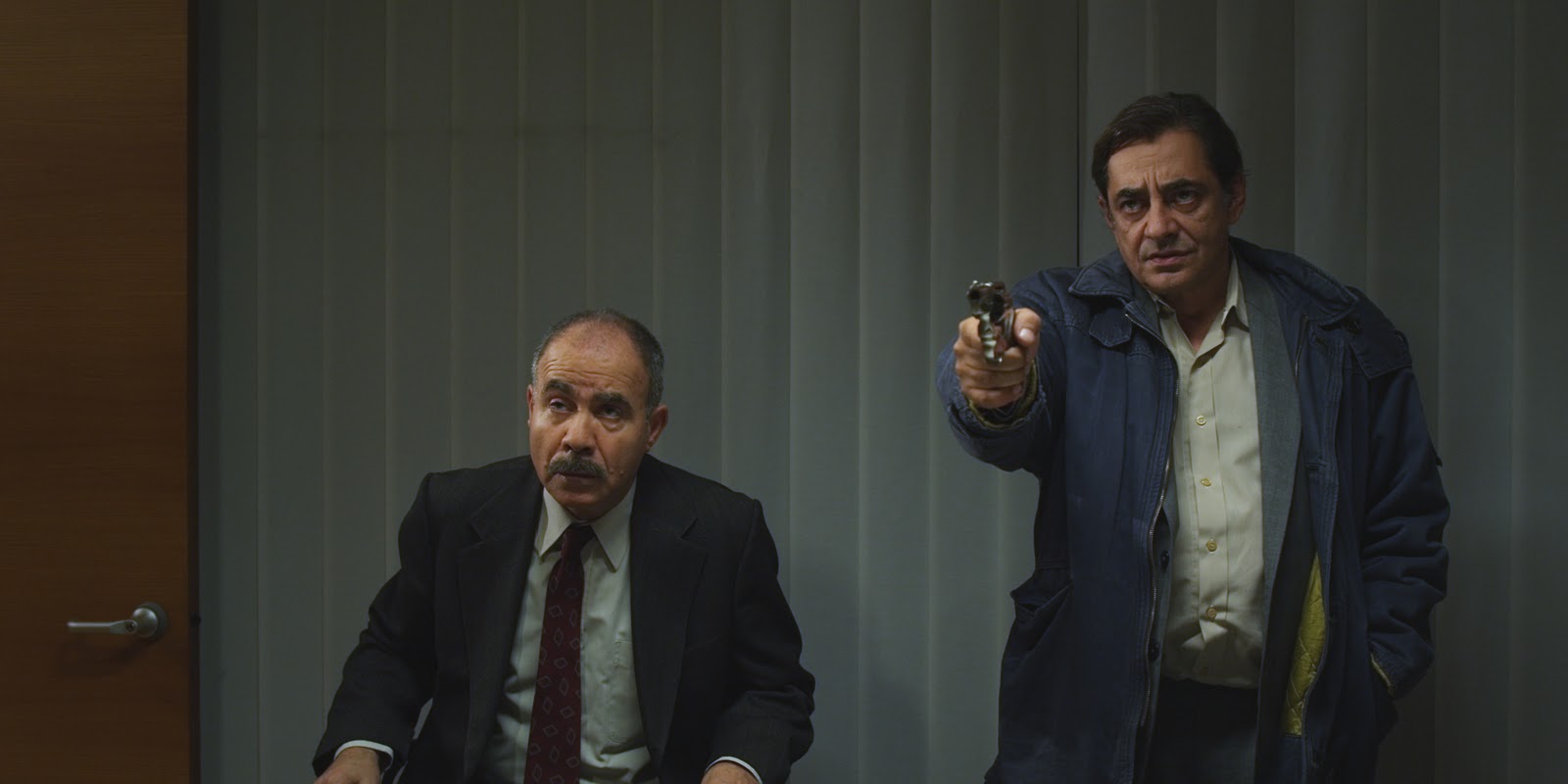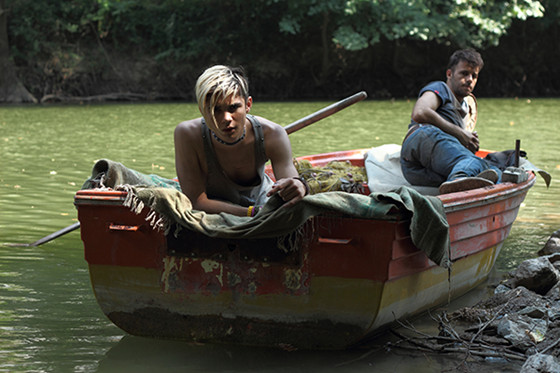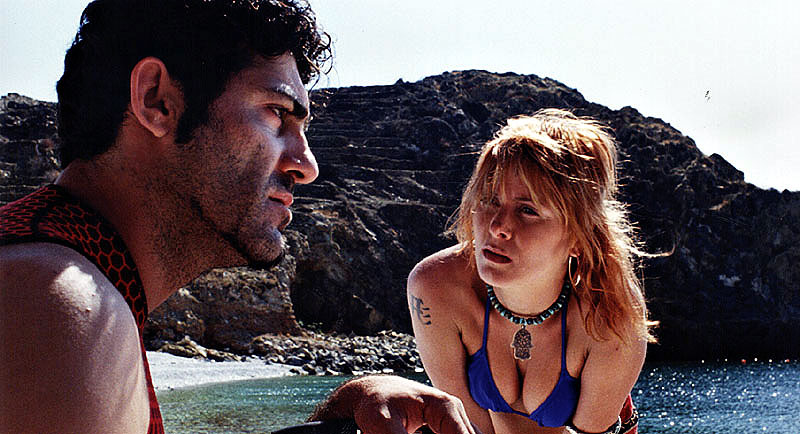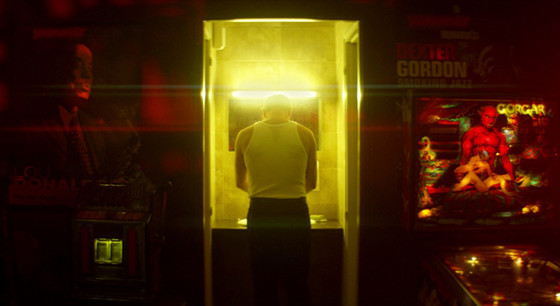8. Stratos (2014)
Stratos (Vangelis Mourikis) committed a crime of passion when he was 19 years old and has spent half of his life in prison, under the protection of a gangster called Leonidas (Alekos Pangalos). One day, when a fight happens between rival gangs, Leonidas saves his life. Stratos lives with a code of honor and he never forgets the debt that he owes to Leonidas.
After he is released from prison, he gets to work to repay him. He executes contracts of death and all the money that he earns, he gives it to Leonida’s brother, who organizes a bold plan in order to help him escape from a maximum-security prison. However, not everything goes according to plan.
Yannis Economides’ fourth movie is a neo-noir which focuses on the internal turmoil of Stratos. He fights for his personal redemption and dignity and he is willing to do anything in order to achieve his goals.
The dialogue uses some strong language although it is lighter than Economides’ previous movies. Vangelis Mourikis gives an outstanding performance by depicting a killer who at first seems emotionless and ruthless but as the movie goes on, we see a more humane side of him. Even during the silence, his expression and body language build an original and unforgettable character.
9. Norway (2014)
We are going back in time, to 1984. Zano (Vangelis Mourikis) is a vampire who goes to Athens for the first time. He is photophobic but he is also an excellent dancer. He is looking for a “warm” girl and he goes to a disco called Zardoz and most of the clients there are outlaws.
There, he meets a prostitute whose name is Aliki (Alexia Kaltsiki) and he also gets acquainted with a Norwegian dealer, Peter (Daniel Bolda). They will undertake a weird case, which is going to lead Zano to the mountain of Parnitha, to the bowels of the earth, where they will find the kingdom of Mathousalas (Chris Protin). What Mathousalas desires most is the kiss of eternal life, which is the last bite of the vampire.
This is the first feature film of Yannis Veslemes, who has directed short films, video clips and commercials. He won the price for the Best First Film Director at the Hellenic Film Academy Awards and was also nominated for seven other awards, including Best Actor, for the character of Vangelis Mourikis.
Although the script is not that captivating, Christos Karamanis does an excellent job with the cinematography and the special effects are spectacular. There are very few vampire movies in Greece and he succeeds in creating a story that combines the paranormal with the mystery and the social element.
10. Attenberg (2010)
Marina (Ariane Labed), a 23-year-old girl, does not have any experience with men. Her best and only friend Bella (Evangelia Randou) is exactly the opposite. She is very experienced and usually she gets what she wants. Their relationship is very competitive and Marina even accuses her of flirting with her father. Her father, Spyros (Vangelis Mourikis), and Bella are the only people that Marina has any kind of relationships.
Spyros is dying from cancer and he asks her a favor: to send him to Germany after he dies in order to be cremated instead of being buried in the ground. Everything is new to her. She tries to discover her sexuality with an unknown engineer and generally human life itself. Until now, the only way she understood life was through watching and mimicking mammal documentaries by David Attenborough and by listening to “Suicide”.
Athina Rachel Tsangari directs a film that could be a criticism to contemporary society, not just Greek society but every industrial society in the world. We see that Marina does not feel comfortable around people and she finds them fake and boring. But is she the real outsider or is she the only original?
The only way to communicate with them is by mimicking their behavior, like she mimics the behavior of the animals in documentaries. Ariane Label is great at performing the detached object of our society. She acts very naturally and her face portrays beautifully her lack of feelings, even when she is supposed to feel something.
11. Unfair World (2011)
Sotiris (Antonis Kafetzopoulos) is a police interrogator. He feels that the justice system is unfair and that some people don’t deserve to be put inside bars for the crimes they have committed. So, one day he decides to become righteous. He acquits of charges all the people he believes have been wronged by the system because they didn’t have the means to defend themselves or to live a prosperous life.
In his attempt to save another innocent, he accidentally kills a man. Dora (Theodora Tzimou) is the only witness to the murder. They get involved in a relationship where one tries to save the other. Sotiris believes he can trust her because she is like the people that have been treated by life unfairly, pessimistic and without any hope for the future.
The film depicts Athens during the crisis and how some people are trying to survive. Sotiris and Dora are trapped in a vicious circle: They are doing the same routine every day, just to survive. Dora is like a typical worker who tries to make ends meet by doing everything she can. We see that when she says what jobs she has taken in order to live. She is willing to do everything, even use sex to get her job done.
The film won the Best Director (Filippos Tsitos) and Best Actor (Antonis Kafetzopoulos) awards at the San Sebastian International Film Festival. Antonis Kafetzopoulos gives an excellent performance as the ethical interrogator who tries to change the system even if he knows that his actions are vain at the end.
12. Xenia (2014)
The film shows the story of two brothers, Dany (Kostas Nikouli) and Odysseas (Nikos Gelia), who after the death of their Albanian mother begin a trip in Greece in order to meet their Greek father who abandoned them when they were children. Dany is 16 years old and Odysseas is almost 18. Dany, who is gay, is a special teenager who also has some psychological problems and lives in his own world.
They are traveling to Thessaloniki so that Odysseas, who sings beautifully, could take part in a talent show that is being held there. But the main reason for Dany is to meet his father, who is believed to live there. Their goal is to take the citizenship test so that they are not in danger of deportation and to ask from their lost father some financial assistance.
With this movie, the director (Panos H.Koutras) makes a comment about the life of minorities in Greece. Unfortunately, this is a contemporary subject, as the rise of the far right has become a reality. How is it to be immigrant or gay and live in Greece? The two brothers are trying to find their father on a road trip that it will bring them closer together.
Like “Strella”, although this is the first film that they take part in, the actors’ performances seem very natural and you could not tell the difference between them and more experienced actors. The film had a wide release and was nominated and won many awards at different festivals, like Cannes and the Chicago International Film Festival.
13. One Day in August (2001)
The story is about three families who live in the same apartment and flee Athens to go on holidays on August 15th. During this period of the year, Athens is empty as everyone goes to an island or to a resort near the city, just to get out of the heat. Morfoula (Eleni Kastani) and Fanis (Akilas Karazisis) are seeking a remedy (or a miracle) for their daughter who is sick. Michalis (Michalis Iatropoulos) and Sandra (Theodora Tzimou) are beginning their trip in order to go to the beaches of Mani.
Katia (Amalia Moutousi), who is ironically a doctor who advises women on children, tells her husband, Kostas (Emilios Chilakis), that she desperately wants a child, but he does not share the same opinion. They all want to escape the harsh reality of their everyday life. Giannis, a 17-year-old burglar, breaks into their apartment in order to find a place to stay. There, by his findings we learn many of the secrets and unspoken desires of the three families.
Director Konstantinos Giannaris successfully combines the four stories into a solid one and shows the difficult circumstances the heroes of the movie have to deal with. The movie talks about love but also about the lack of it. People are fleeing Athens to get away from the routine but as the trip goes on, they discover more things about themselves that they could endure. Are there any miracles? And if there are, do they feel that they are worthy of them?
The film shows the isolation they feel, not only the young burglar but the families, too. They don’t seem connected to each other and their wishes most of the times are in opposite directions. The film won the Hellenic Association of Film Critics Award at the Thessaloniki Film Festival.
14. Wednesday 04:45 (2015)
Stelios (Stelios Mainas) is an owner of a jazz bar which plays jazz music by calling every time different bands. Jazz is not popular in Greece but Stelios already knew that. He opened the club seventeen years ago in order to make the difference in the Greek musical scene and up to one point he succeeded. The staff likes him because he is fair and he seems to really care about them. It is 2010 and the season is winter.
Everything goes smoothly until an old friend comes to the bar. He reminds him the debt the he owns to a Romanian gangster. They visit him together and we see that he is feeling very agitated. The gangster informs him that he has two choices: either he pays his debt, which he can’t, or he has to give him the bar.
Stelios is devastated. The bar is not just a way for him to make ends meet but it also keeps him near to the thing that he loves: jazz music. The choice is difficult and Stelios is not willing to give up easily.
The film, which is directed and written by Alexis Alexiou, is a neo noir which is shot mostly at night and with a rainy weather, to add fear and misery to the feelings of the protagonist. During the movie, we can watch and hear the priminister of Greece on TV talking to the Greek people and scenes from the riots in Athens.
The director is saying implicitly that the life of Stelios is like the life of the country itself: he borrowed money in order to make his dream become true (the jazz bar) and he kept borrowing it from the Romanian gangster without taking into consideration that some day he has to pay back.
We can hear the phrase “You are responsible” many times during the movie. Will Stelios finally take the responsibility for his actions? Special mention has to be given to the excellent cinematography of Christos Karamanis (also in “Norway”) that helped significantly to build a neo noir atmosphere in the film.
Author Bio: Kostas Kapantais is a 28-year-old psychologist and he has been watching movies for a long time. He likes noticing details in movies that haven’t been spotted by a wider audience.

